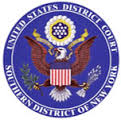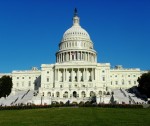 Recently the U.S. District Court for the Southern District of New York certified a liability class in a Title VII suit brought against the United States Census Bureau. In Houser v. Pritzker, Magistrate Judge Frank Maas found that five of eight named plaintiffs had standing to bring suit, and further held that the proposed class met the commonality and typicality requirements of Rule 23(a).
Recently the U.S. District Court for the Southern District of New York certified a liability class in a Title VII suit brought against the United States Census Bureau. In Houser v. Pritzker, Magistrate Judge Frank Maas found that five of eight named plaintiffs had standing to bring suit, and further held that the proposed class met the commonality and typicality requirements of Rule 23(a).
The judge declined, however, to certify a damages class. Analyzing the Supreme Court’s decision in Comcast Corp. v. Behrend, which significantly raised the bar for predominance under Rule 23(b), Magistrate Judge Maas found that certification of a damages class was inappropriate given the highly individualized nature of each class member’s damages. Rather than reject certification entirely, the Court chose to exercise its discretion under Rule 23(c)(4) to bifurcate the liability and damages phase, and proceed to adjudication of the liability questions.
As such, the decision of Houser is of significant importance to all employers in the workplace class action context.
Background
The United States Census Bureau conducts a nationwide census every 10 years, known as the Decennial Census. The 2010 Decennial Census created 1.3 million temporary employment positions between October 2008 and September 2010, and the Census Bureau received about 3.8 million applications for these positions.
In screening job applicants, the Census Bureau required all applicants with a criminal record to provide “official court documentation” of their prior arrests and convictions within 30 days of receipt of a demand letter. Once the documentation was received, staff members would review and determine whether to treat the applicant as available for hire, or request further information.
In 2010, eight individuals filed a purported class action suit challenging these procedures as non-job related and discriminatory because they negatively impacted the hiring of African-Americans and Latinos for obtaining employment.
The Court’s Decision
Magistrate Judge Maas focused primarily on two issues – subject matter jurisdiction and class certification under Rule 23 – in his ruling.
Subject Matter Jurisdiction
The Census Bureau moved to dismiss the suit for lack of subject matter jurisdiction pursuant to Rule 12(b)(1). The court examined whether the named plaintiffs had standing to bring suit and whether a favorable decision could redress their injuries.
First, the court concluded that five of the eight named plaintiffs individually possessed Article III standing to bring suit because they met the bare minimum qualifications for employment. Even though the Census Bureau established that the candidates would not have been hired due to a variety of factors ‒ geography, test scores and availability, among others ‒ the court rejected the notion that Title VII plaintiffs must show that they ultimately would have secured employment. Rather, “the question here is whether the Census Bureau’s allegedly discriminatory practices place any of the named plaintiffs on an unequal footing in terms of their ability to compete for employment.” In answer to this question, the court determined that the “five plaintiffs have established that they were eligible to be considered for employment but were denied the opportunity to compete with other applicants. That showing is sufficient to confer standing under Title VII.”
The court also held that the requested relief could redress the injuries of the same five plaintiffs. The court rejected the Census Bureau’s argument that each plaintiff was “precluded from selection for reasons entirely independent of the challenged policies and procedures” and therefore had no injuries that could be redressed by the relief sought. The court noted that these arguments were simply “repackaged” arguments relating to standing, and it denied the Census Bureau’s motion to dismiss.
Class Certification
Next, the court examined certification of the class. The court found without hesitation that the class met the standard for commonality under the Supreme Court’s decision in Wal-Mart Stores v. Dukes, 131 S. Ct., and commented that Dukes seemed to address the very situation at bar, where there was a “testing procedure to evaluate [all] applicants for employment” and “a class action on behalf of every applicant or employee who might have been prejudiced.” The court found that the parties had all but agreed that the “central questions in the case have a common, classwide answer; [and] the only point on which the parties disagree is the answers themselves.”
In examining typicality, the court noted that the only two Latino class representatives were not among the five plaintiffs with standing, and therefore the court declined to certify a class including Latino class members. This class definition seems unlikely to hold, however, as the court noted that Plaintiffs will have an opportunity to identify other Latino representatives, and the court may in its discretion amend the class definition at that time.
Finally, the court examined the predominance requirement of Rule 23(b) and found no bar to certification with respect to injunctive relief. The court’s analysis of damages sub-classes, however, was quite different. The court explained that “[t]he Supreme Court recently emphasized the stringency of the predominance requirement in Comcast Corp. v. Behrend” which requires that plaintiffs offer a damages model capable of calculating damages across the class. Given the “highly individualized nature” of analyzing damages as to any individual class member in this case, the court found that individual questions would predominate and the stringent requirements of Comcast were not met.
Nevertheless, the court found that Comcast did not mandate denial of class certification in its entirety. Rule 23(c)(4) allows a court in its discretion to maintain a class action only with respect to particular issues, and Magistrate Judge Mass opined that “nothing in the [Comcast] ruling appears to have taken that option off the table in future lawsuits.” The court noted that although Comcast did not bifurcate the issues under Rule 23(c)(4), the plaintiffs in that suit did not request that relief.
Implications for Employers
Courts have disagreed as to the effect of Comcast on class certification. Some have held that the decision requires a class-wide model for calculating damages in order to certify a class for any purpose, while other courts have bifurcated liability and damages phases and granted certification only with respect to the former. Indeed, district courts in the Second Circuit have reached different conclusions, and the Court of Appeals for the Second Circuit seems poised todecide the issue. Employers should be watching carefully.
This blog was previously published on the Seyfarth Shaw website.



